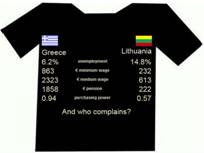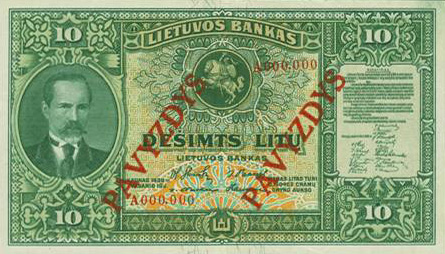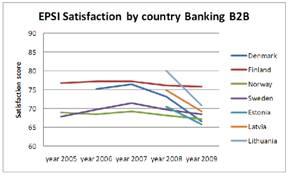
THE VOICE OF INTERNATIONAL LITHUANIA
|
VilNews has its own Google archive! Type a word in the above search box to find any article.
You can also follow us on Facebook. We have two different pages. Click to open and join.
 Click on the buttons to open and read each of VilNews' 18 sub-sections Click on the buttons to open and read each of VilNews' 18 sub-sections  |
- 1.Front page
- 2.About VilNews
- 3.Lithuania today
- 4.Historical Lithuania
- 5.Photos from Lithuania
- 6.Travel Lithuania!
- 7.Lithuania in the world
- 8.The world in Lithuania
- 9.Litvak forum
- 10.Culture and events
- 11.Real estate - architecture
- 12.Business, economy - investments
- 13.Education, research and development
- 14.Sport and leisure
- 15.Health and wellbeing
- 16. Visit markets - Go shopping
- 17.Lithuanian food and beverages
- 18.Hotels and restaurants
Business, economy, investments sidebar
Greeks won, Lithuanians lost!
- Posted by - 12547(0) Commenthttps%3A%2F%2Fvilnews.com%2F%3Fp%3D12539Greeks+won%2C++Lithuanians+lost%212012-03-22+14%3A53%3A370df53x21http%3A%2F%2Fvilnews.com%2F%3Fp%3D12547
![]()

By Val Samonis
Before they realized what is going on and who was robbing them, the Lithuanian people got clubbered by PM Kubilius’ ambitious austerity policy and the younger ones started emigrating in catastrophic numbers, seeing no future in the country whose GDP was reduced (from a low post-Soviet level) by some 20% by the combination of the old nomenklatura rent-seeking policies and the global Great Recession. Lithuania is hollowing out, unfortunately.
- Bookmark :
- Digg
- del.icio.us
- Stumbleupon
- Redit it
A far too bright picture of the present reality
- Posted by - 12538(1) Commenthttps%3A%2F%2Fvilnews.com%2F2012-03-a-far-too-bright-picture-of-the-present-realityA+far+too+bright+picture+of+the+present+reality2012-03-22+14%3A49%3A420df53x21http%3A%2F%2Fvilnews.com%2F%3Fp%3D12538
![]()

By Aage Myhre, Editor-in-Chief
The above post from Val Samonis, where he compares “crisis-hit” Greece and a Lithuania supposed to be quickly recovering from the 2008 crisis, internationally praised for its austerity measures, calls for reflection.
The difference is that while the people of Greece protest and angrily demonstrate in the streets of Athens, people here only become more and more bitter, emigrate, begets crime in other countries, etc.
Lithuania's elderly and disadvantaged people who have seen their minimum pensions drastically cut, and mothers seeing that the child benefits are completely removed as concept, they bow their necks and become even more active in growing potatoes on their garden spots outside the city instead of standing up against the government’s unfair measures against them...
This country's politicians claim they have been the smartest in Europe by cutting in time, and not needing much of foreign loans or support from IMF or others. But who are the ones suffering from this?
The answer is relatively clear. Baltic Times recently wrote that the parliamentarians in Lithuania enjoy EU’s second highest salaries/benefits, with only French politicians ahead. See http://www.baltictimes.com/news/articles/30094/
It is unquestionably true that things now are improving. But this happens very slowly, and one must remember that the Baltic countries were far behind the free countries of Europe in 1990 and that to bring them up the same level and standard required a much steeper growth curve here, which has not been the case despite colossal EU funding. To reach the average GDP and standards for the EU27 countries is very far away, probably 20-40 years from now.
Unemployment has begun to decline somewhat, but we are talking only about a reduction from around 18% three years ago, against 14% today. When one also knows that about 20% of the country's able-bodied labour force has emigrated during this period, there is in other words no significant improvement to be proud of. Also, many of those having a job, work in state enterprises or administration where effectiveness perhaps is about 50% of what one finds in Western countries, hence the statistics are not showing much of the real situation.
My conclusion are therefore the following:
• There are in fact no more real jobs now than it was four years ago.
• The number of productive jobs has probably gone more down than up.
• The most skilled workers have left the country and the quality of work is therefore on a downturn, hence the statistics presents a far too bright picture of today’s reality in Lithuania.

- Bookmark :
- Digg
- del.icio.us
- Stumbleupon
- Redit it
What is this country going to live on 20 years from now?
- Posted by - 11974(0) Commenthttps%3A%2F%2Fvilnews.com%2F%3Fp%3D7136What+is+this+country+going+to+live+on+20+years+from+now%3F2012-02-20+15%3A02%3A120df53x21http%3A%2F%2Fvilnews.com%2F%3Fp%3D11974
- Bookmark :
- Digg
- del.icio.us
- Stumbleupon
- Redit it
New Chairman of the Bank of Lithuania
- Posted by - 4163(0) Commenthttps%3A%2F%2Fvilnews.com%2F2011-03-new-chairman-of-the-bank-of-lithuaniaNew+Chairman+of+the+Bank+of+Lithuania2011-03-26+15%3A17%3A220df53x21http%3A%2F%2Fvilnews.com%2F%3Fp%3D4163
![]()

Vitas Vasiliauskas
Friday the Seimas of the Republic of Lithuania decided to appoint Vitas Vasiliauskas as the Chairman of the Board of the Bank of Lithuania. The decision comes into force as of 16 April 2011.
The current Chairman of the Board of the Bank of Lithuania Reinoldijus Šarkinas congratulated Vitas Vasiliauskas on this occasion.
“I wished the new Chairman of the Board of the Bank of Lithuania all the best”, said Reinoldijus Šarkinas.
The Chairman of the Board of the Bank of Lithuania is appointed for a term of five years by the Seimas of the Republic of Lithuania upon nomination by the President. The number of the terms of office is not limited.
Reinoldijus Šarkinas has been holding the position of the Chairman of the Board of the Bank of Lithuania since 15 February 1996. After the end of his term of office, the Seimas has authorised Reinoldijus Šarkinas to continue working as the Chairman of the Board of the Bank of Lithuania until 15 April 2011.
- Bookmark :
- Digg
- del.icio.us
- Stumbleupon
- Redit it
Independence day commemoration
- Posted by - 2740(0) Commenthttps%3A%2F%2Fvilnews.com%2F2011-02-independence-day-commemorationIndependence+day+commemoration2011-02-16+15%3A47%3A510df53x21http%3A%2F%2Fvilnews.com%2F%3Fp%3D2740

In connection to this year’s Lithuanian Independence Day, it might be of your interest to know that in 1938 there was printed an unissued ten litu banknote commemorating the 20th anniversary of Lithuanian independence 1918-1938.
President Smetona and the Declaration of Independence is on the note’s face, and the Council of Lithuania is on the back. Smetona is interred in a mausoleum in Ohio.
Submitted by Frank Passic, Albion, Michigan.
- Bookmark :
- Digg
- del.icio.us
- Stumbleupon
- Redit it
This year 70% of all state funds will go to social security and education
- Posted by - 1433(0) Commenthttps%3A%2F%2Fvilnews.com%2F2011-01-this-year-70-of-all-state-funds-will-go-to-social-security-and-educationThis+year+70%25+of+all+state+funds+will+go+to+social+security+and+education2011-01-18+19%3A39%3A320df53x21http%3A%2F%2Fvilnews.com%2F%3Fp%3D1433
The total spending in 2011 will stand at more than 36 billion litas, and earnings – at 31 billion litas. The task of the public finance deficit in 2011 is 5.8% of the gross domestic product (GDP), informs LETA/ELTA.
In 2011, the national budget revenue (including state and municipal budgets) will total 19 billion 907.8 million litas, and costs – 22 billion 468 million litas. Next year, the expenditures of the SoDra budget will stand at 13 billion 576 million litas (out of which 2 billion 407 million litas will be transferred to the Compulsory Health Insurance Fund), and revenues – at 10 billion 943 million litas.
- Bookmark :
- Digg
- del.icio.us
- Stumbleupon
- Redit it
Anything Lithuania’s Diaspora can do for the home country?
- Posted by - 1429(0) Commenthttps%3A%2F%2Fvilnews.com%2F2011-01-anything-lithuania%25e2%2580%2599s-diaspora-can-do-for-the-home-countryAnything+Lithuania%E2%80%99s+Diaspora+can+do+for+the+home+country%3F2011-01-18+19%3A38%3A230df53x21http%3A%2F%2Fvilnews.com%2F%3Fp%3D1429
This book by Dr. Antanas J. Van Reenan at the University of Chicago analyzes the dynamics of their Lithuanian Diaspora mentality
Lithuania’s aspirations to sustainable development are dependent on availability of qualified and experienced human and financial resources. At present the country is experiencing shortages of both if to meet the demand of the expansion of new businesses and jobs. The two major causes for the shortage are (a) limited foreign investments, and (b) the massive exodus of highly qualified professionals over the last two decades. These have depleted Lithuania’s human capital leading to compromise in quality and global competitiveness. Engaging the brain power of its professionals in the Diaspora is one approach to ensure the fulfilment of the country’s quest for growth. In this regard, Lithunia requires strategic collaboration, partnership and networking among all its stakeholders. The Lithuanian Diaspora, including their second and third generations, are among the critical resources whose maximum mobilization and engagement are indispensible.
- Bookmark :
- Digg
- del.icio.us
- Stumbleupon
- Redit it
Lithuanian banking market
- Posted by - 1424(0) Commenthttps%3A%2F%2Fvilnews.com%2F2011-01-lithuanian-banking-marketLithuanian+banking+market2011-01-18+19%3A36%3A330df53x21http%3A%2F%2Fvilnews.com%2F%3Fp%3D1424
Since 2004 EPSI Baltic has been monitoring the pulse of the consumer trends in the Baltic region. Here is their latest conclusion regarding bank customer satisfaction:
“We may conclude, that majority of observed banks should concentrate on re-establishing of trustful relationships with their customers in Lithuania. In Latvia, only SEB and Nordea managed to gain some ground in terms of consumer loyalty, while Parex, suffers from the biggest loyalty drop with more than 14 points, this is the record for the entire industry for the last five years.”
The Lithuanian banking market remained weak throughout 2010. Erkki Raasuke, Swedbank AB’s chief financial officer, reportedly commented at a recent conference in Tallinn that the Lithuanian banking market, though the Baltic nations’ weakest, still bleeds quite badly. He also noted that Estonia’s market was recovering, while Latvia had bottomed out. The bank said that it expects to return to profit in Estonia first. Lithuania’s market still bleeds quite badly today, mainly the retail market that is tied to the high unemployment, Raasuke said. Loans overdue for more than 60 days are still growing in Lithuania.
- Bookmark :
- Digg
- del.icio.us
- Stumbleupon
- Redit it
OPINIONS
Have your say. Send to:
editor@VilNews.com
Ph. D., Chicago
A wave of unity sweeps the international Lithuanian community on March 11th every year as Lithuanians celebrated the anniversary of the Lithuanian Parliament's declaration of independence from the Soviet Union in 1990. However, the sense of national unity engendered by the celebration could be short-lived.
Human beings have a strong tendency to overgeneralize and succumb to stereotypical us-them distinctions that can shatter even the strongest bonds. We need only search the internet to find examples of divisive thinking at work:
- "Those who fled Lithuania during World II were cowards -- and now they come back, flaunt their wealth, and tell us 'true Lithuanians' how to live."
- "Lithuanians who work abroad have abandoned their homeland and should be deprived of their Lithuanian citizenship."
In Lithuania Christmas Eve is a family event and the New Year's Eve a great party with friends!
Lithuanian say "Kaip sutiksi naujus metus, taip juos ir praleisi" (the way you'll meet the new year is the way you will spend it). So everyone is trying to spend New Year's Eve with friend and have as much fun as possible.
Lithuanian New Year's traditions are very similar to those in other countries, and actually were similar since many years ago. Also, the traditional Lithuanian New Years Eve party was very similar to other big celebrations throughout the year.
The New Year's Eve table is quite similar to the Christmas Eve table, but without straws under the tablecloth, and now including meat dishes. A tradition that definitely hasn't changes is that everybody is trying not to fell asleep before midnight. It was said that if you oversleep the midnight point you will be lazy all the upcoming year. People were also trying to get up early on the first day of the new year, because waking up late also meant a very lazy and unfortunate year.
During the New Year celebration people were dancing, singing, playing games and doing magic to guess the future. People didn't drink much of alcohol, especially was that the case for women.
Here are some advices from elders:
- During the New Year, be very nice and listen to relatives - what you are during New Year Eve, you will be throughout the year.
- During to the New Year Eve, try not to fall, because if this happens, next year you will be unhappy.
- If in the start of the New Year, the first news are good - then the year will be successful. If not - the year will be problematic.
* If New Year's night is cold and starry - look forward to a good summer!
* If the during New Year Eve trees are covered with frost - then it will be a good year. If it is wet weather on New Year's Eve, one can expect a year where many will die and dangerous epidemics occur.
* If the first day of the new year is snowy - the upcoming year will see many young people die. If the night is snowy - mostly old people will die.
* If the New Year time is cold - then Easter will be warm.
* If during New Year there are a lot of birds in your homestead - then all year around there will be many guests and the year will be fun.
Christmas greetings
from Vilnius
and epic battle for the
future

Philosopher, political theorist, historian of
ideas, social analyst, and political
commentator
Ukraine was and continues to be perceived by the EU political class as a sort of grey zone with its immense potential and possibilities for the future, yet deeply embedded and trapped in No Man's Land with all of its troubled past, post-Soviet traumas, ambiguities, insecurities, corruption, social divisions, and despair. Why worry for what has yet to emerge as a new actor of world history in terms of nation-building, European identity, and deeper commitments to transparency and free market economy?
Right? Wrong. No matter how troubled Ukraine's economic and political reality could be, the country has already passed the point of no return. Even if Vladimir Putin retains his leverage of power to blackmail Ukraine and the West in terms of Ukraine's zero chances to accede to NATO due to the problems of territorial integrity, occupation and annexation of Crimea, and mayhem or a frozen conflict in the Donbas region, Ukraine will never return to Russia's zone of influence. It could be deprived of the chances to join NATO or the EU in the coming years or decades, yet there are no forces on earth to make present Ukraine part of the Eurasia project fostered by Putin.
want to learn about the
new, scary propaganda
war between Russia,
The West and the
Baltic States!
believe their government
is corrupt

students say no to
bribes for doctors


During Soviet times, government was administered for the people in control, not for the local population, court decisions were decreed, they were not the administration of justice, and academia was the domain of ideologues. 25 years of freedom and openness should have put those bad experiences behind Lithuania, but that is not so.
Today, it is a matter of expectation that court pronouncements will be governed by ideological dictates. Few, if any Lithuanians expect real justice to be effected. For foreign companies, doing business in Lithuania is almost impossible in a situation where business people do not expect rule of law, so, surely Government would be a refuge of competence?
Lithuanian Government has not emerged from Soviet styles. In an attempt to devolve power, Lithuania has created a myriad of fiefdoms of power, each speaking in the name of the Government, each its own centralized power base of ideology.

Chepstow, Wales
Doesn't that sound suspiciously like Lithuania? Ah, but I didn't mention the mountains of Snowdonia, which would give the game away.
I'm talking about Wales, that part of the UK which Lithuanians used to call "Valija", but later named "Velsas" (why?). Wales, the nation which has welcomed two Lithuanian heads of state to its shores - firstly Professor Vytautas Landsbergis, who has paid several visits and, more recently, President Dalia Grybauskaitė who attended the 2014 NATO summit which was held in Newport, South Wales.
ENGLISH VERSION OF THE
AUTOBIOGRAPHY OF VYTAUTAS LANDSBERGIS.


Although Lithuanian activities have thinned over the decades as that postwar generation died out, the Lithuanian Martyrs' parish hall is crowded with many, many hundreds of visitors who come to the Lithuanian cemetery for All Souls' Day. Similarly, the Franciscan parish has standing room only for Christmas Eve mass.
Although I am firmly embedded in the literary culture of Canada, my themes are usually Lithuanian, and I'll be in Kaunas and Vilnius in mid-November 2015 to give talks about the Lithuanian translations of my novels and short stories, which I write in English.
If you have the Lithuanian language, come by to one of the talks listed in the links below. And if you don't, you can read more about my work at
www.anatanassileika.com
http://www.vdu.lt/lt/rasytojas-antanas-sileika-pristatys-savo-kuryba/ https://leu.lt/lt/lf/lf_naujienos/kvieciame-i-rasytojo-59hc.html

"My love and best wishes to all. As long as VilNews exists, there is hope for the future,"" she writes.
Irena Veisaite means very much for our publication, and we do hereby thank her for the support and wise commitment she always shows.
You can read our interview with her
Facing a new reality

Dear readers of VilNews,
For a number of years, the EU and Russia had assumed the existence of a strategic partnership, based on the convergence of values, economic integration and increasingly open markets and a modernisation agenda for society.
Our agenda was positive and ambitious. We looked at Russia as a country ready to converge with "European values", a country likely to embrace both the basic principles of democratic government and a liberal concept of the world order. It was believed this would bring our relations to a new level, covering the whole spectrum of the EU's strategic relationship with Russia.
The likelihood of Putin
invading Lithuania
.jpg)
Founding Director at Summer Literary Seminars
Are all Lithuanian energy
problems now resolved?

Lithuania as a country does not have significant energy resources. Energy consuming infrastructure after WWII was small and totally supported by energy imports from Russia.
First nuclear reactor begins power generation at Ignalina in 1983, the second reactor in 1987. Iganlina generates enough electricity to cover Lithuania's needs and about 50%.for export. As, prerequisite for membership in EU, Ignalina ceases all nuclear power generation in 2009
The Klaipėda Sea terminal begins Russia's oil export operations in 1959 and imports in 1994.
Mazeikiu Nafta (current ORLEAN Lietuva) begins operation of oil refinery in 1980.
Have Lithuanian ties across
the Baltic Sea become
stronger in recent years?

The two decades that have passed since regaining Lithuania's independence can be described as a "building boom". From the wreckage of a captive Soviet republic, a generation of Lithuanians have built a modern European state, and are now helping construct a Nordic-Baltic community replete with institutions intended to promote political coordination and foster a trans-Baltic regional identity. Indeed, a "Nordic-Baltic community" - I will explain later in my text the meaning of this catch-phrase.
Since the restoration of Lithuania's independence 25 years ago, we have continuously felt a strong support from Nordic countries. Nordics in particular were among the countries supporting Lithuania's and Baltic States' striving towards independence. Take example of Iceland, country which recognized Lithuania in February of 1991, well in advance of other countries. Yet another example - Swedish Ambassador was the first ambassador accredited to Lithuania in 1991. The other countries followed suit. When we restored our statehood, Nordic Countries became champions in promoting Baltic integration into Euro-Atlantic institutions. To large degree thanks Nordic Countries, massive transformations occurred in Lithuania since then, Lithuania became fully-fledged member of the EU and NATO, and we joined the Eurozone on 1 January 2015.

Have you heard about the
South African "Pencil Test"?

But that is exactly what happened to me when I came back from South Africa. I will tell you how.
VilNews e-magazine is published in Vilnius, Lithuania. Editor-in-Chief: Mr. Aage Myhre. Inquires to the editors: editor@VilNews.com.
Code of Ethics: See Section 2 – about VilNews. VilNews is not responsible for content on external links/web pages.
HOW TO ADVERTISE IN VILNEWS.
All content is copyrighted © 2011. UAB ‘VilNews’.









